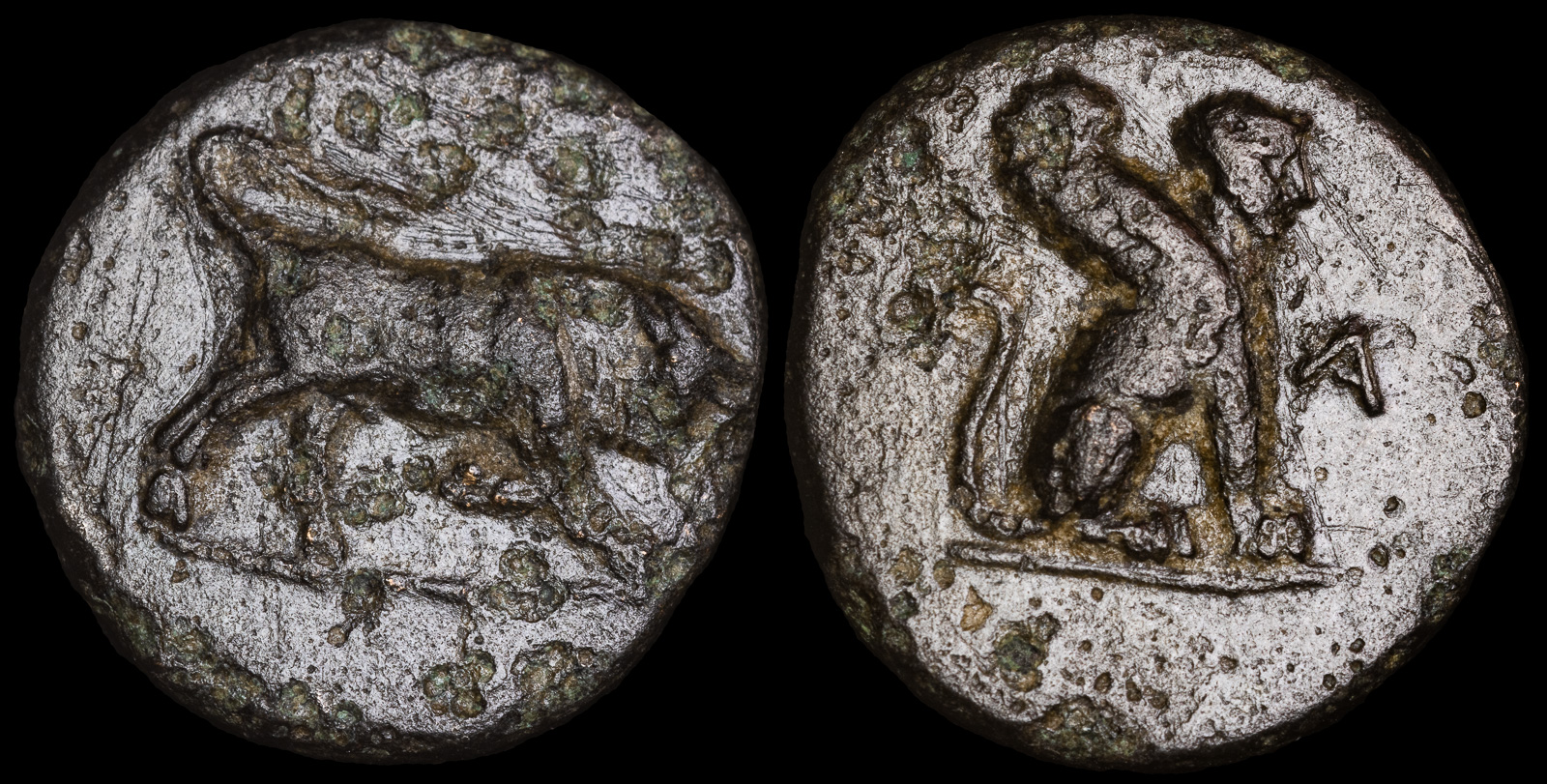
Caria, Kaunos
c. 350-300 BCE
Æ 13mm, 1.66g, 12h
Bull butting r.
R/ Sphinx seated r.
Konuk pl. 50, B; SNG Copenhagen 182
Kaunos certainly started with an interesting story. It was founded by Kaunos, who was the son of King Miletos and Kyane, who had tried to prevent Hades from abducting her playmate, Persephone.
Kaunos happened to have a twin sister named Byblis, who started lusting after her brother. When Kaunos learned of her love, he skipped town and ran away with his followers. He named the place where he ran, Kaunos – and so the city was founded.
Byblis, for her part, cried so much that the river Kablys came from her tears. The sources differ on what eventually happened to her, but she either committed suicide or died of grief.
The city of Kaunos, on the other hand, grew to be an important city due to its two ports.
During the Hellenistic times after Alexander the Great, Kaunos was ruled by the Seleukids, Ptolemies, and Antigonids.
Athenaios wrote of its figs: “That those from Carian Kaunos are acclaimed is a commonplace.”
Kaunos bitterly resists the Persians of Harpagos, but are defeated.
Peace of Antalkidas, arranged by Artaxerxes II, is signed in Susa, ending the Corinthian War. Abydos, Aigai, Kalchedon, Kaunos, Klazomenai, Kyzikos, Parion, Samos, and Adramytteion become part of the Persian Empire.
May
The Battle of the Granicus, during which Alexander the Great defeated the Persians under Darius III, and after which Adramytteion and Kaunos come under his control. Kalas participates with the Thessalian cavalry under Parmenion. Perdikkas serves on the right.
Kaunos revolts against Rhodes. Rome remove Kaunos from Rhodes and place it in the Province of Asia.
With the help of Mithridates VI, the inhabitants of Kaunos kill all Romans in their city.
The Romans place Kaunos back under Rhodes as punishment for the murder of Romans.